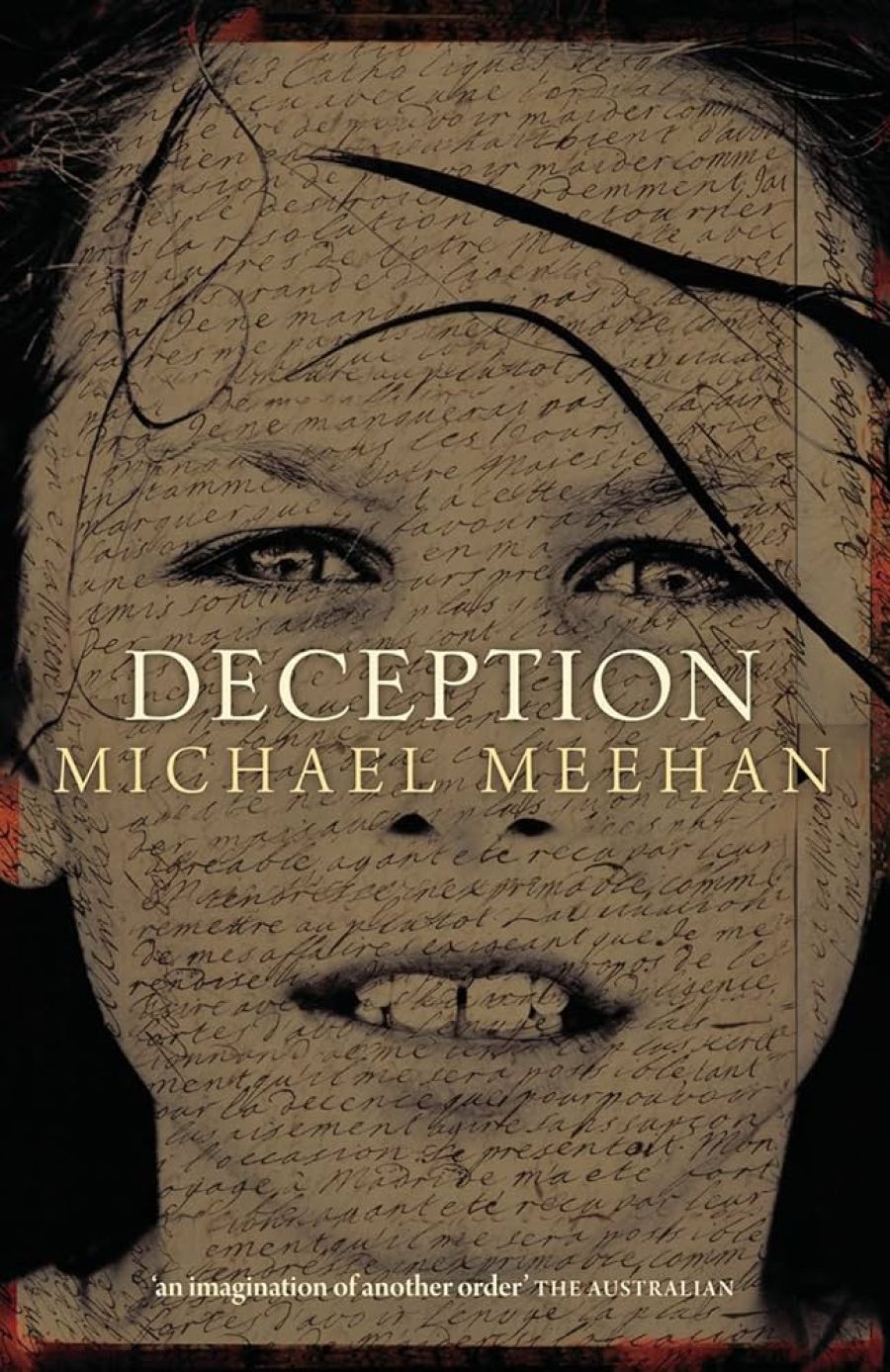
- Free Article: No
- Contents Category: Fiction
- Review Article: Yes
- Article Title: Deception
- Online Only: No
- Custom Highlight Text:
Deception is an historical novel that adds to the emergent school of literary fiction concerned with dramatising historical investigation. As with any subgenre, certain conventions abide. The protagonist tends to be male, dour, a bit of a loner. His quest is usually sparked by a relic of some kind: a cache of letters, a photograph. Ultimately, history is shown to impinge on the present; the musty conundrums surrounding the relic are resolved; the protagonist may experience a vague epiphany.
- Book 1 Title: Deception
- Book 1 Biblio: Allen & Unwin, $32.95 pb, 288 pp
- Book 1 Cover Small (400 x 600):

- Book 1 Cover (800 x 1200):

Deception’s dour loner is Nick Lethbridge, an Australian law student who has arrived in Paris in the middle of the May 1968 uprising. Lethbridge is researching his great-grandfather, Paul-Auguste Duvernois, a Communard who ended up as a farmer in Australia. The relic of the piece is a chaotic, allusive manuscript purportedly composed by another Communard exile, Sebastien Rouvel, while holed up on Duvernois’s outback property. In alliance with Julia Dussol, a Parisian scholar and Rouvel’s great-great-grandniece, Lethbridge sets out to learn what brought Duvernois and Rouvel together on Australian soil, and what tore them apart.
Deception is a cautionary tale: the search for ‘closure’, for a coherent historical narrative, is fraught with danger, for history is rarely benign. Nick’s and Julia’s egoism is nicely developed against the turbulent setting. The parallels between the Commune and May 1968 are obvious, but Meehan doesn’t labour the point. Rather, Nick and Julia remain almost oblivious to the calamity surrounding them. They prefer to dwell in the past, which gives the impression of being neater.
History, Deception argues, is never pat; Deception, however, often is. It is frustrating that a novel that exhibits such awareness of the deceptive nature of narrative is at the same time slave to convention. Stock characters do not help, nor does the stuffy style. Nevertheless, Deception is complex, intellectually rich and often intriguing.


Comments powered by CComment